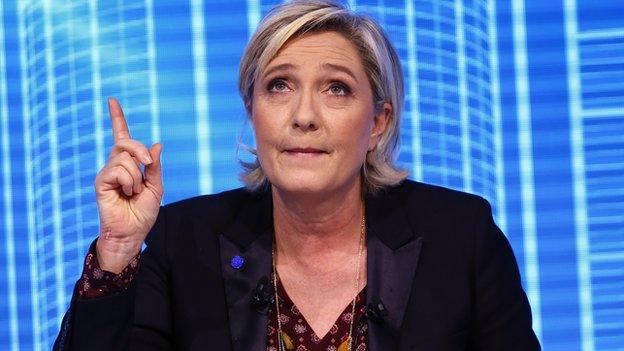French election: Macron vows to tackle terrorism by taking on tech companies
- Published
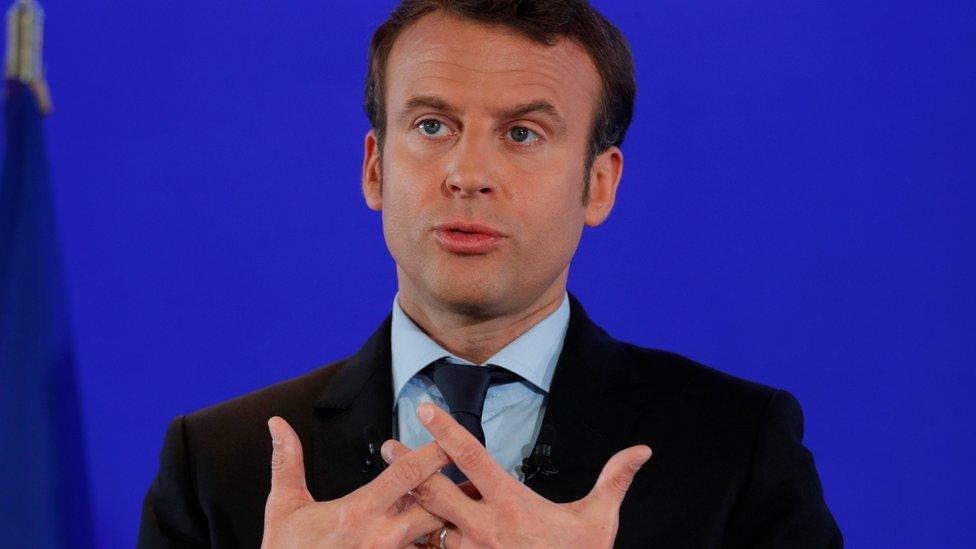
Presidential candidate Emmanuel Macron officially kicks off his campaign in Paris
French centrist candidate Emmanuel Macron has launched his presidential campaign with a plan to tackle terrorism by forcing internet firms to release encrypted messages.
Election campaigning officially began on Monday, two weeks ahead of the first round of voting.
Opinion polls predict Mr Macron and far-right Marine Le Pen will reach the second round on 7 May.
Ms Le Pen will set out her security priorities later in the day.
One new poll has put hard-left candidate Jean-Luc Melenchon into third place, ahead of the centre-right's Francois Fillon, who has been embroiled in corruption allegations.
Mr Melenchon is thought to have been buoyed by two televised debates which saw him get tough on Ms Le Pen.
Eleven candidates will compete in the first round on 23 April.
Speaking at his Paris launch, Mr Macron said he wants to legally compel social media companies to give authorities access to encrypted messages between terror suspects.
"Democratic states must have access to content exchanged between terrorists on social media and instant messaging," he said, while introducing a five-point strategy that would bring in new powers across Europe.
He said it was "no longer acceptable" for companies to insist that they have a contractual obligation to clients after offering protected communication.
He cited Google, Facebook, Apple and Twitter as those he wants to have frank discussions with.
Emmanuel Macron: "If we don't move forward we will dismantle the Eurozone and the European Union"
Mr Macron, a former investment banker, is running for his self-created En Marche (Onwards) party.
Ms Le Pen, who heads the National Front party created by her father, was heavily criticised at the weekend for saying France was not responsible for rounding up Jews to send them to Nazi death camps during the World War Two.
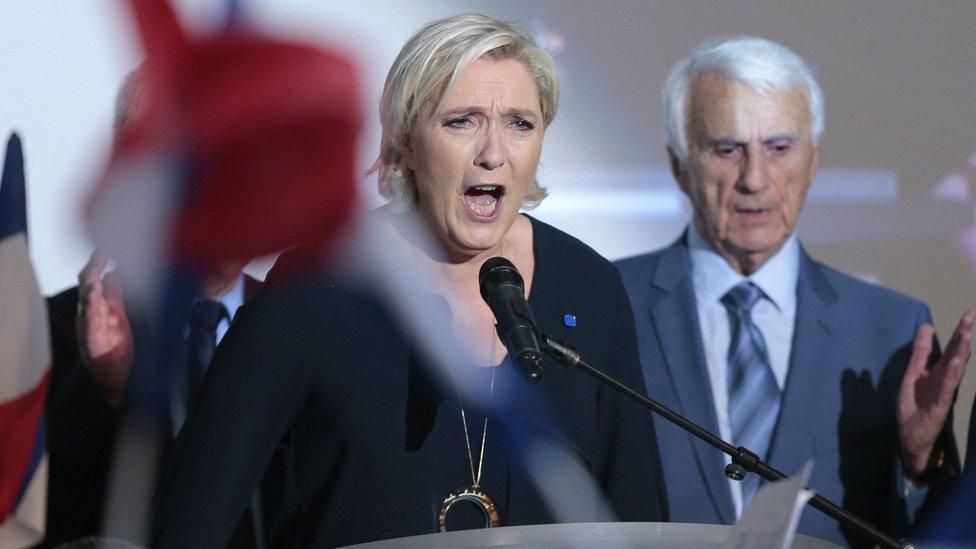
Marine Le Pen made comments on the Holocaust that have been condemned by the Israeli foreign ministry
During a television interview on Sunday, she was speaking specifically about 13,000 Jews who were gathered at at the Vel d'Hiv cycling track in Paris in 1942, on Nazi orders.
Ms Le Pen has since expressed her condemnation for the French government at the time of the "vile round-up".
"I consider that France and the Republic were in London during the occupation and that the Vichy regime was not France," she said.
However late on Sunday, Ms Le Pen issued a statement saying her stance "in no way exonerates the effective and personal responsibility of the French people who took part in the horrible Vel d'Hiv roundup and in all the atrocities committed during this period".
- Published4 April 2017
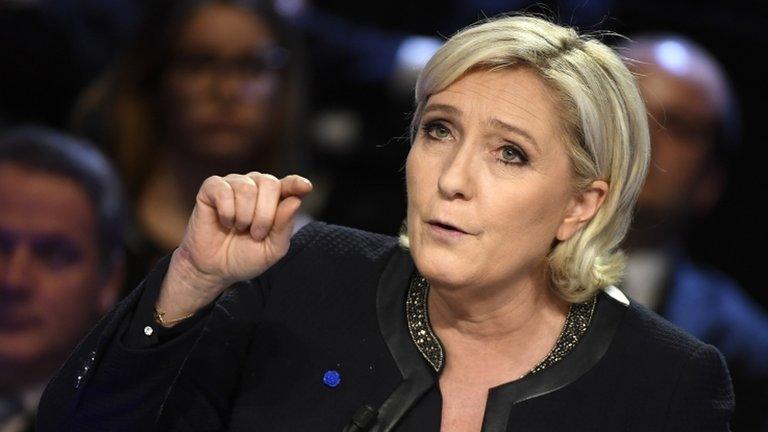
- Published9 April 2017
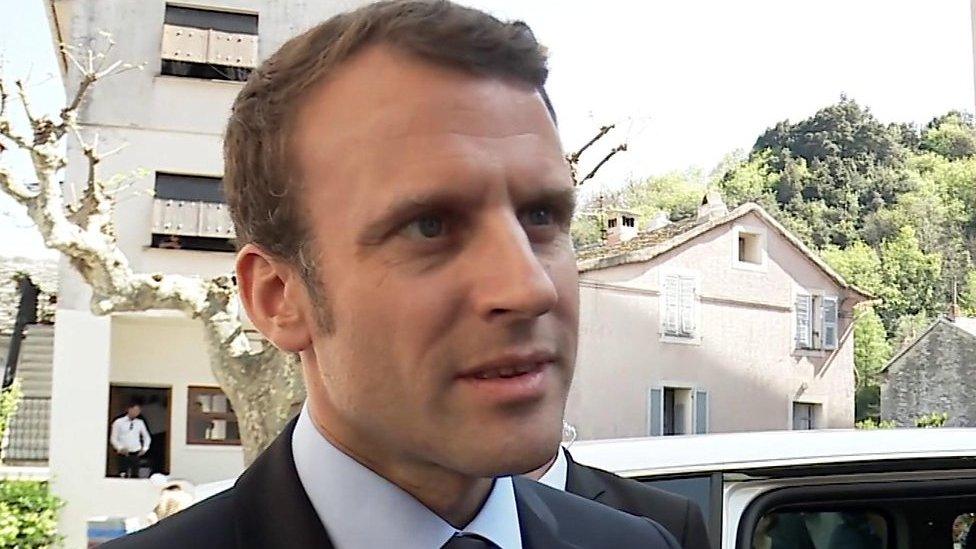
- Published5 April 2017
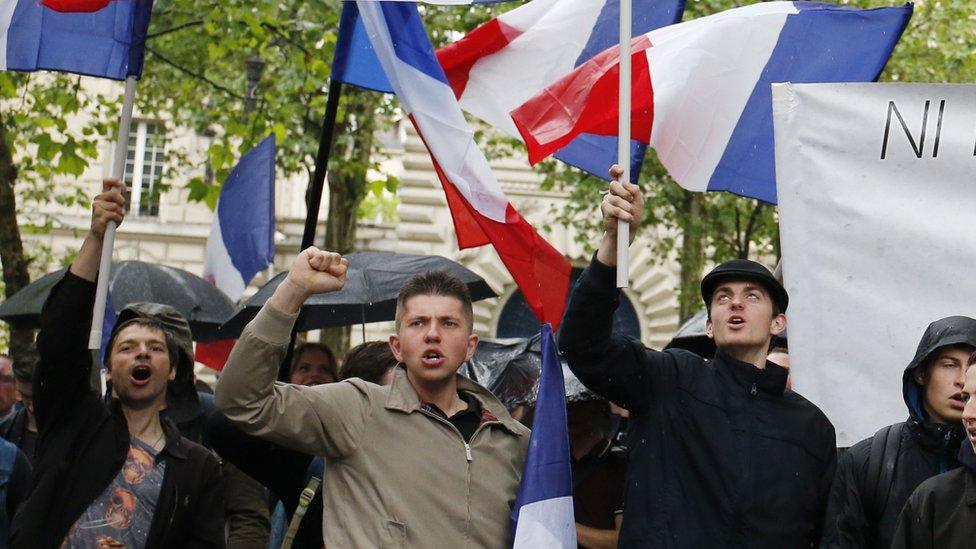
- Published8 March 2017
